"My purpose is to empower each person in my care to take steps towards a healthy future and live their lives as positively and independently as possible."
If you or someone you love are dealing with any of the following issues do not hesitate to reach out.
- ADHD
- Adoption
- Anger Management
- Antisocial Personality
- Anxiety
- Bipolar Disorder
- Borderline Personality
- Codependency
- Depression
- Divorce
- Domestic Violence
- Eating Disorders
- Emotional Disturbance
- Grief
- Hoarding
- Infertility
- Infidelity
- Life Transitions
- Marital and Premarital
- Men’s Issues
- Narcissistic Personality
- Obesity
- Obsessive-Compulsive (OCD)
- Oppositional Defiance
- Parenting
- Peer Relationships
- Pregnancy, Prenatal, Postpartum
- Racial Identity
- Relationship Issues
- School Issues
- Self Esteem
- Self-Harming
- Stress
- Suicidal Ideation
- Teen Violence
- Testing and Evaluation
- Transgender
- Trauma and PTSD
- Weight Loss
- Women’s Issues
Accepted Insurance Plans:














and Out of Network Providers
Are you feeling overwhelmed, losing hope or just wanting things to be different?
Mental health or psychiatric conditions are common. Many times, they run in families. Some of the most common mental health conditions are depression, anxiety, and bipolar disorder. These illnesses and others like them interfere with your thoughts, feelings, and behaviors. Learning you have a mental health condition can be upsetting. But there is hope. There are a variety of treatments available for mental health conditions. Don’t be afraid to ask for help.
INDIVIDUAL THERAPY
Individual counseling or psychotherapy is the process of inner exploration leading to deeper understanding of how you relate to yourself, to others, and to the world in general.Inspire change and improve quality of life
COUPLE / FAMILY THERAPY
All couples experience some degree of conflict in their lives. Often the solution is addressing those issues by not letting your less-loving interactions define your relationship. Marriage counseling and couples therapy can help.
ADOLESCENT / TEEN THERAPY
It’s natural for teenagers to begin establishing independent lives and identities as they mature. Often this process creates tension between teens and parents. It’s a process of learning and of trial and error. Your kids are bound to make missteps along the way.
COGNITIVE BEHAVIORAL (CBT)
CBT treatment usually involves efforts to change thinking patterns. These strategies might include: Learning to recognize one's distortions in thinking that are creating problems, and then to reevaluate them in light of reality. Gaining a better understanding of the behavior and motivation of others.
Dialectical behavior therapy (DBT)
Dialectical behavior therapy is an evidence-based psychotherapy that began with efforts to treat personality disorders and interpersonal conflicts. Evidence suggests that DBT can be useful in treating mood disorders and suicidal ideation, as well as for changing behavioral patterns such as self-harm and substance use.
emotionally focused therapy (EFT)
Emotionally Focused Therapy (EFT) is a well-known humanistic approach to psychotherapy formulated in the 1980's and developed in tandem with the science of adult attachment, a profound developmental theory of personality and intimate relationships.
Mindfulness-Based Cognitive Therapy
Mindfulness-Based Cognitive Therapy (MBCT) is designed to help people who suffer repeated bouts of depression and chronic unhappiness. It combines the ideas of cognitive therapy with meditative practices and attitudes based on the cultivation of mindfulness.
positive psychology
Positive psychology is the scientific study of what makes life most worth living, focusing on both individual and societal well-being. It studies "positive subjective experience, positive individual traits, and positive institutions...it aims to improve quality of life.
SOLUTION FOCUSED BRIEF (SFBT)
Solution-focused therapy is a goal-directed collaborative approach to psychotherapeutic change that is conducted through direct observation of clients' responses to a series of precisely constructed questions.
TRAUMA FOCUSED
Trauma focused cognitive behavioral therapy is an evidence-based psychotherapy or counselling that aims at addressing the needs of children and adolescents with post traumatic stress disorder and other difficulties related to traumatic life events.
Parenting
Parenting or child rearing promotes and supports the physical, emotional, social, spiritual and intellectual development of a child from infancy to adulthood. Parenting refers to the intricacies of raising a child and not exclusively for a biological relationship.
Reality therapy
Reality therapy is a form of counseling that views behaviors as choices. It states that psychological symptoms occur not because of a mental health condition, but due to people choosing behaviors to fulfill their needs.
Dissociative Disorders
Dissociative disorders are mental disorders that involve experiencing a disconnection and lack of continuity between thoughts, memories, surroundings, actions and identity. People with dissociative disorders escape reality in ways that are involuntary and unhealthy and cause problems with functioning in everyday life.
Elderly Persons Disorders
Mental health problems are common among seniors and may include isolation, affective and anxiety disorders, dementia, and psychosis, among others. Many seniors also suffer from sleep and behavioral disorders, cognitive deterioration or confusion states as a result of physical disorders or surgical interventions.
Impulse Control Disorders
Impulse control disorders are characterized by chronic problems in which people lack the ability to maintain self-control which ultimately results in the onset of extreme disruptions and dysfunctions in personal, familial, social, and academic aspects of their lives.
Personality Disorders
Personality disorders are complex mental health conditions that effect multiple areas of a person’s life, including behaviour, thoughts, and feelings, on a daily basis. They can also affect how you understand and relate to other people, as well as your general health and wellbeing.
Psychosis
Psychosis is when people lose some contact with reality. This might involve seeing or hearing things that other people cannot see or hear (hallucinations) and believing things that are not actually true (delusions).
Eating Disorders
Eating disorders are serious conditions related to persistent eating behaviors that negatively impact your health, your emotions and your ability to function in important areas of life. The most common eating disorders are anorexia nervosa, bulimia nervosa and binge-eating disorder.
